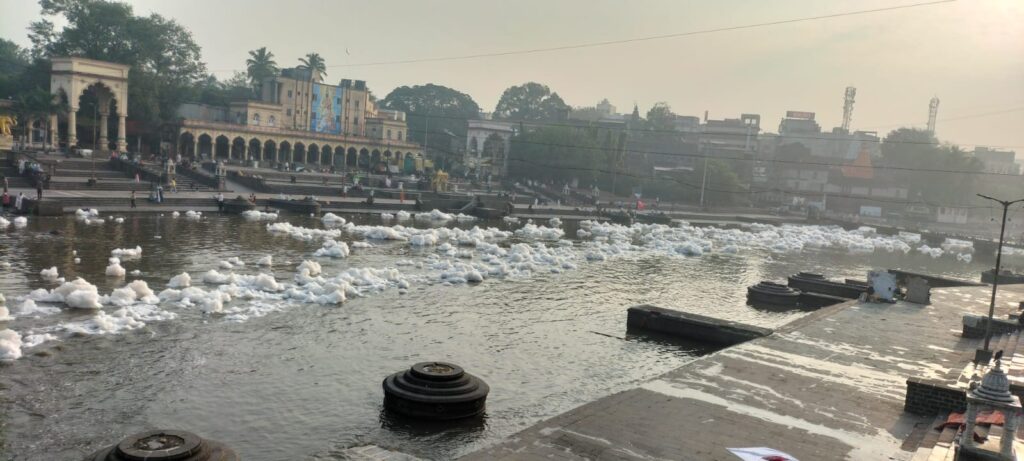NGT Proactively Investigates Use of Draynzyme in Cleaning Water Bodies In Pune

The National Green Tribunal (NGT) has taken proactive measures regarding the use of Draynzyme in cleaning water bodies in Pune, following concerns raised by environmentalists. In response to a pilot project initiated by the Pune Municipal Corporation (PMC) involving the bio-enzyme in Ramnadi, NGT directed the Central Pollution Control Board (CPCB) to conduct a thorough feasibility study and submit a report within four months.
The NGT’s intervention came after media reports highlighted PMC’s utilization of Draynzyme and other additives in Pune’s water bodies, raising concerns about potential ecological risks and compliance with environmental norms. Concerns were particularly raised regarding the experimental nature of these interventions and the lack of scientific evidence supporting their long-term efficacy and environmental safety.
Acknowledging the need for a comprehensive evaluation, the NGT emphasized the importance of scientific scrutiny before permitting the use of Draynzyme on water hyacinth and other natural water bodies. The directive underscores the necessity for coordination between the CPCB and the Industrial Toxicology Research Centre (ITRC), Lucknow, to ensure rigorous assessment of the potential impacts on aquatic ecosystems.
PMC’s pilot study in the Bavdhan area, facilitated by M/s Quinquent Industries Private Limited Pune, aimed to address sewage contamination in Ramnadi using Draynzyme. According to Madhav Jagtap, deputy commissioner of the environment department, PMC, Draynzyme is an enzyme-based product designed to accelerate chemical reactions in the environment, facilitating the breakdown of organic waste.
Laboratory reports from the National Environmental Engineering Research Institute (NEERI) indicated a reduction in pollution levels when Draynzyme was employed. However, concerns remain regarding toxicity and corrosion, prompting the need for further evaluation by competent authorities.
In response to NGT’s directives, PMC lawyer Rahul Garg assured that no further experiments would be conducted until clearance is obtained from the appropriate regulatory bodies.
NGT’s proactive stance underscores the importance of evidence-based decision-making in environmental management, ensuring that interventions are guided by scientific scrutiny and adherence to regulatory standards. The forthcoming report from the CPCB will provide crucial insights into the feasibility and potential risks associated with the use of Draynzyme in Pune’s water bodies, informing future policy and regulatory measures in safeguarding aquatic ecosystems.









